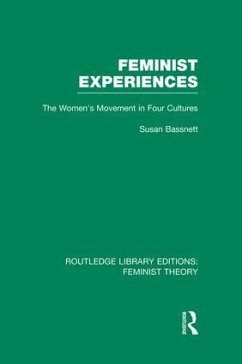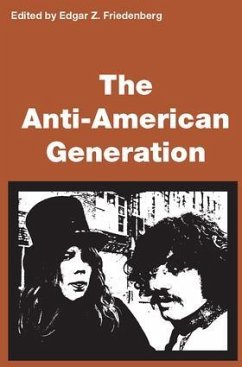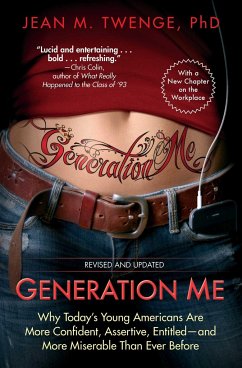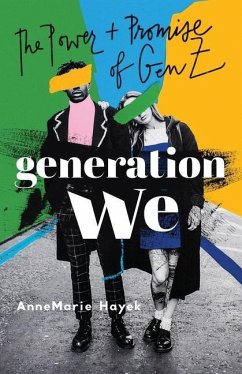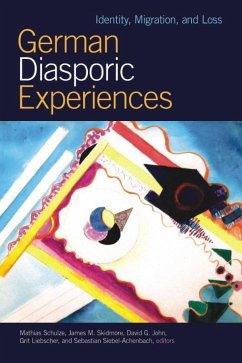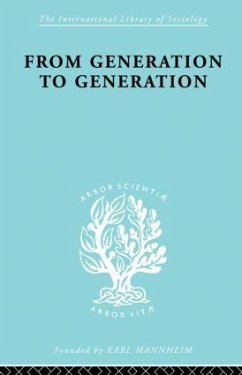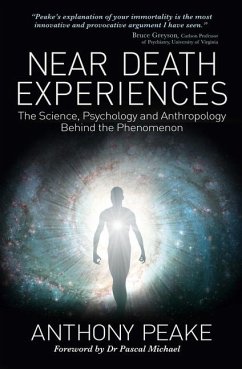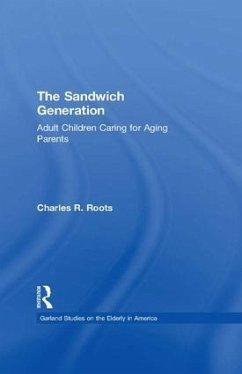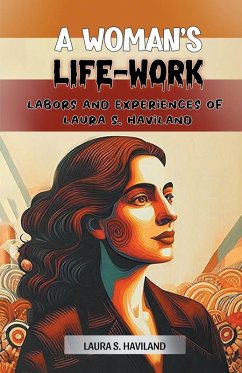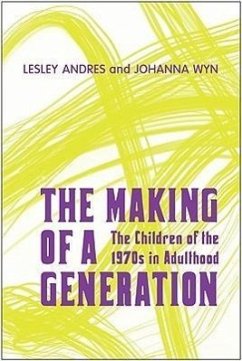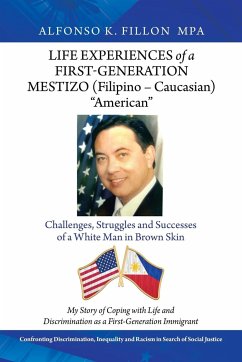
Life Experiences of a First-Generation Mestizo (Filipino - Caucasian) "American"
Challenges, Struggles and Successes of a White Man in Brown Skin

PAYBACK Punkte
9 °P sammeln!
In a time of nationwide riots and protest throughout America this is a timely work by the authors that gets down to the nitty gritty of discrimination in America as experienced by his father, his mother and himself. This author a Filipino-Caucasian mestizo tells you what discrimination is really like from a historical first-person experience as he has lived it every day and been exposed to it on the streets, in the schools and in bureaucracies of America. His no holds barred story, paints a clear picture of what discrimination really looks like, feels like and how it impacts one's outlook on l...
In a time of nationwide riots and protest throughout America this is a timely work by the authors that gets down to the nitty gritty of discrimination in America as experienced by his father, his mother and himself. This author a Filipino-Caucasian mestizo tells you what discrimination is really like from a historical first-person experience as he has lived it every day and been exposed to it on the streets, in the schools and in bureaucracies of America. His no holds barred story, paints a clear picture of what discrimination really looks like, feels like and how it impacts one's outlook on life and the "American Dream". He tells how despite his father migrating thousands of miles to experience the American dream and his mother a white American desiring for him to live and self-actualize that American dream, he experiences being a white American trapped in a brown skin and who will never be accepted by Americans universally as a "real" American. The author offers his perspective on American biases and deceit, cleverly disguised under pretenses of justice, fairness, equal opportunity, and equality under God. He challenges the reader's analytical objectivity and conscience to first self-assess the validity of his assertions and then walk through these pages of life experiences with him in his shoes for clarity of understanding and empathy as to the denial of this first generation mestizo's quest to be a real American and live the American Dream. The author makes a valid case that since the anti-Filipino riots in Watsonville, California in 1919 and posting of signs in businesses reading "No Dogs or Filipinos Allowed", the multi-cultural 2020 riots for equality and justice throughout the United States graphically show that the Heart of Americans has not changed much, if any - racism is still alive and well throughout.





